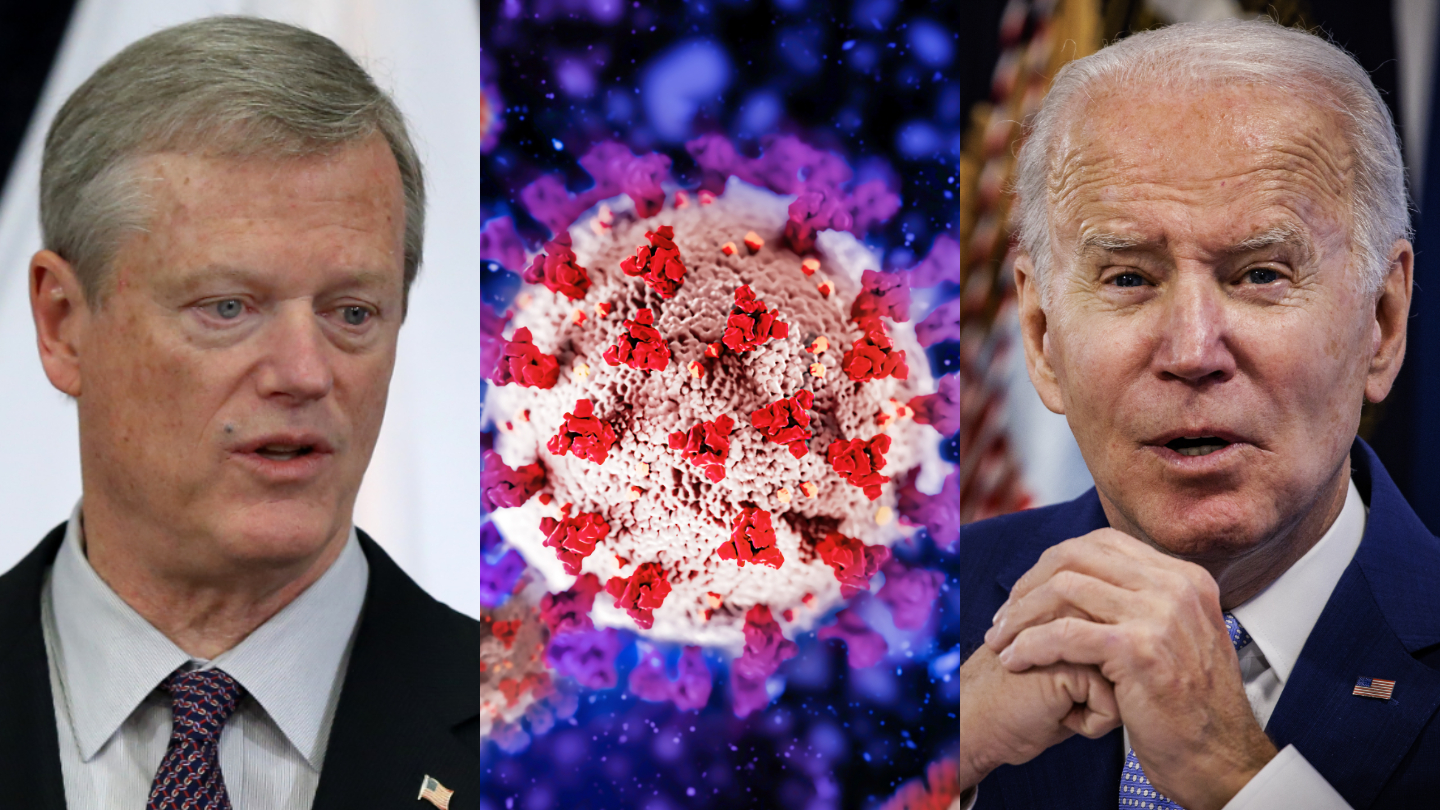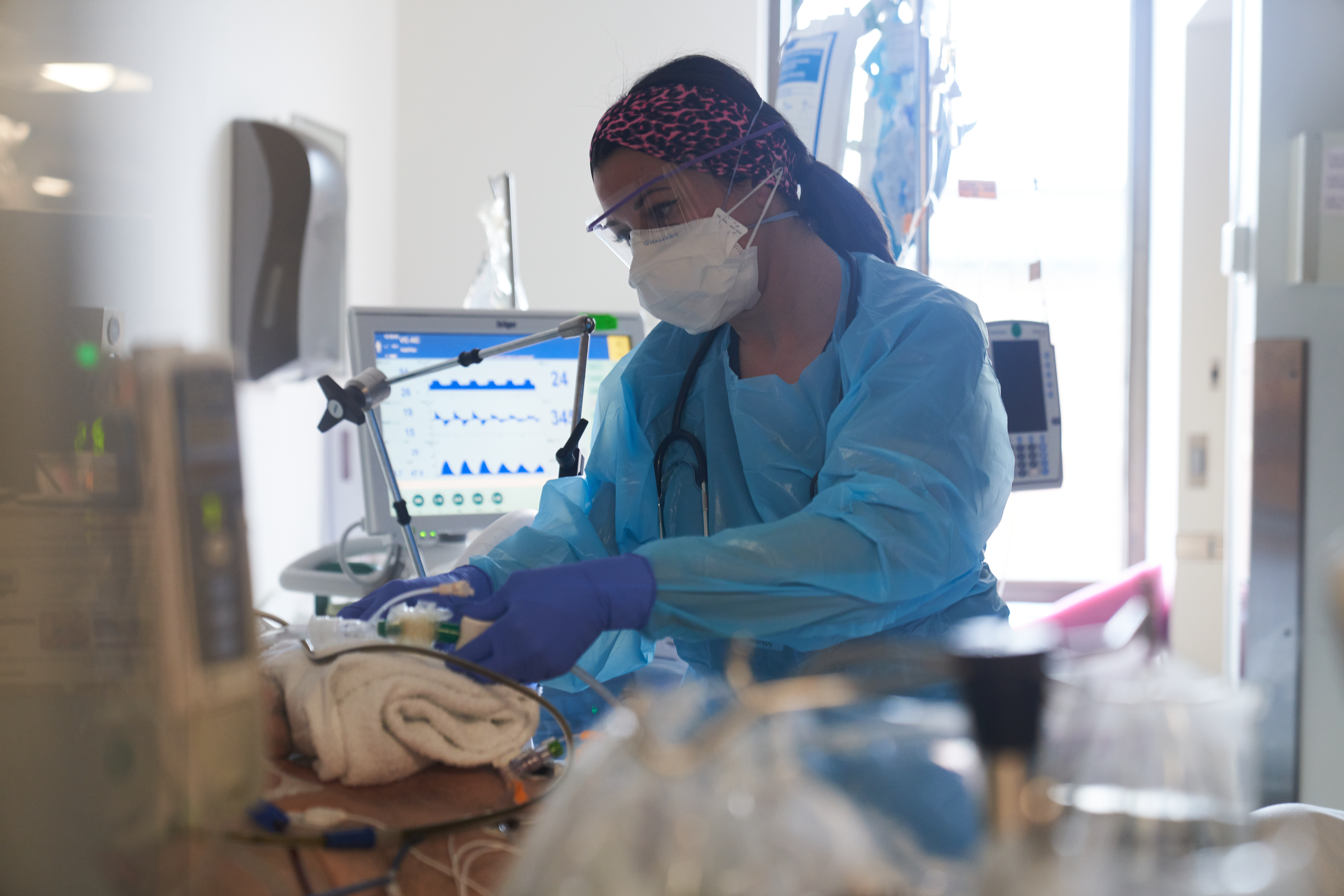With omicron now the dominant strain in the U.S. and cases rapidly rising across Massachusetts and the country, experts say there are some symptoms that appear prominent with the new COVID variant and differ from what many came to expect with the delta variant.
Dr. Katherine Poehling, an infectious disease specialist and member of the Advisory Committee on Immunization Practices, told NBC News last week that a cough, congestion, runny nose and fatigue appear to be prominent symptoms with the omicron variant. But unlike delta, many patients are not losing their taste or smell.
The evidence so far, according to Poehling, is anecdotal and not based on scientific research. She noted also that these symptoms may only reflect certain populations.
Some experts suggest the symptoms could depend on vaccination status and underlying health conditions.
Get Boston local news, weather forecasts, lifestyle and entertainment stories to your inbox. Sign up for NBC Boston’s newsletters.
"This has been one of the thorniest ones. We don't yet have an answer," said Dr. Sabrina Assoumou of Boston Medical Center. "Initially when it first came out from South Africa reports were that it was causing only mild disease. But the thing you have to take into consideration is it was a young population with a high level of immunity. What we're seeing is how omicron performed in a community with a lot of immunity. As we've moved on and gotten a lot more information, with the U.K. data that came out, the way they phrased it it does not seem to be less severe than delta, so that's the way to think about it. We're not sure if it's going to be either more severe or as severe. But it's definitely something to pay a lot of close attention to."
"It's clearly causing vaccination breakthroughs," added Boston Medical Center's Dr. David Hamer. "It's better able to evade the immune response from vaccination. There's now evidence from both Pfizer and Moderna that if you have a booster you end up boosting the level of protective antibodies and it appears to be sufficient to prevent omicron. It may not completely prevent it, but it will at least attenuate it and make the illness milder."
In New York, where cases continue to surge, an emergency room doctor who became known on social media during the pandemic for his documentation of the battle against COVID, reported breakthrough cases he has seen in those with booster shots experienced "mild" symptoms.
"By mild I mean mostly sore throat. Lots of sore throat," Craig Spencer wrote on Twitter. "Also some fatigue, maybe some muscle pain. No difficulty breathing. No shortness of breath. All a little uncomfortable, but fine."
Cases in people who were fully vaccinated with either Pfizer or Moderna's vaccine, but not boosted, remained mild, but slightly more intense.
"More fatigued. More fever. More coughing. A little more miserable overall. But no shortness of breath. No difficulty breathing," he wrote.
For those with Johnson & Johnson who were not boosted, he wrote the patients "felt horrible," with fevers, fatigue, coughs and shortness of breath, but did not require hospitalization or oxygen.
In the unvaccinated, however, the symptoms were more severe.
"Almost every single patient that I’ve taken care of that needed to be admitted for Covid has been unvaccinated," Spencer wrote. "Every one with profound shortness of breath. Every one whose oxygen dropped when they walked. Every one needing oxygen to breath regularly."
Dr. Angelique Coetzee, the South African doctor who first raised the alarm over the new strain, told the BBC that she started to see patients around Nov.18 presenting with "unusual symptoms" that differed slightly to those associated with the delta variant.
"It actually started with a male patient who's around the age of 33 ... and he said to me that he's just [been] extremely tired for the past few days and he's got these body aches and pains with a bit of a headache," she told the BBC.
The patient didn't have a sore throat, she said, but more of a "scratchy throat" but no cough or loss of taste or smell — symptoms that have been associated with previous strains of the coronavirus.
Coetzee said she tested the male patient for COVID, and he was positive, as was his family, and then said she saw more patients that day presenting with the same kinds of symptoms that differed from the delta variant.
Other patients she had seen so far with the omicron variant had also experienced what she described as "extremely mild" symptoms, and she added that her colleagues had noted similar cases.
Similarly, in the first U.S. case, the president's chief medical adviser Dr. Anthony Fauci said the person was vaccinated but had not received a booster shot and was experiencing “mild symptoms.”
Moderna CEO Stephane Bancel told CNBC that omicron symptoms reported in South Africa may not be a good predictor of the variant's virulence in other parts of the world, because the country has a much younger and healthier population than European nations and the U.S.
According to early findings of a study by the U.K.'s Imperial College London, there is no evidence that the omicron variant is any less severe than the delta variant based on reported symptoms.
"The study finds no evidence of omicron having lower severity than delta, judged by either the proportion of people testing positive who report symptoms, or by the proportion of cases seeking hospital care after infection," a research team led by professor Neil Ferguson said Friday in a blog post accompanying the study.
The data included 24 hospitalizations of patients suspected of having the omicron variant, with researchers saying "hospitalization data remains very limited at this time." The study is yet to be peer-reviewed.
In Massachusetts, hospitalizations have been rising.
As the health care system grapples with labor shortages and capacity constraints, members of the Massachusetts National Guard were slated to be deployed starting Monday to help staff hospitals and ambulance service providers. Monday also marked the first day of a new Baker administration order requiring hospitals with less than 15% of their staffed medical-surgical and intensive care unit bed capacity available to postpone or cancel non-essential, non-urgent scheduled procedures likely to result in inpatient admission.
Monday's Department of Public Health report showed 7,277 of 8,555 medical/surgical beds and 1,001 of 1,231 intensive care beds occupied across the state.
"In the last couple weeks there's been a progressive rise in hospitalizations, and many healthcare facilities in Massachusetts are feeling the crunch," Hamer said. "It was already happening before the current rise, but healthcare systems are really being strained right now."
"Even if it's milder, it can lead to more cases, more hospitalizations and overwhelming our hospital system," Assoumo said. "That's why it's important to take protective measures."
Despite some differences reported between omicron and delta, experts say looking at the symptoms is not enough. And getting tested won't necessarily tell you if you have the omicron variant.
"We need to have ways to quickly tell whether its omicron or something else, although based on Broad [Institute] and other data, it seems like we can assume that almost all infections right now are omicron in Massachusetts and treat them accordingly," Hamer said. "It is presenting challenges at multiple levels of our healthcare system."
Overall, the symptoms for COVID reported by the CDC include:
- Fever or chills
- Cough
- Shortness of breath or difficulty breathing
- Fatigue
- Muscle or body aches
- Headache
- New loss of taste or smell
- Sore throat
- Congestion or runny nose
- Nausea or vomiting
- Diarrhea



